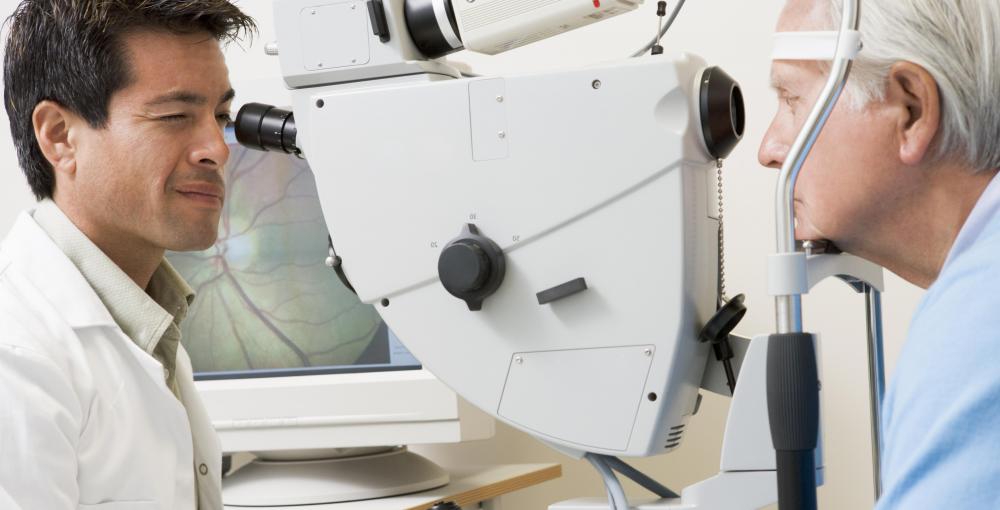At PracticalAdultInsights, we're committed to delivering accurate, trustworthy information. Our expert-authored content is rigorously fact-checked and sourced from credible authorities. Discover how we uphold the highest standards in providing you with reliable knowledge.
What Does a Cornea Specialist Do?
A cornea specialist focuses on caring for patients with health problems related to the cornea, the clear structure that covers the outside of the eye. Cornea specialists may work alone or as part of a larger ophthalmology practice. Their work can include the diagnosis, treatment, and management of a variety of ocular conditions involving the cornea. To practice in this field, it is necessary to have a medical degree and a valid license.
Patients may see a cornea specialist by referral, when another doctor feels the patient could be better served by someone with an extensive body of knowledge in this field. Others may self-refer on the basis of their symptoms and can request appointments with the specialist directly. Appointments typically start with a consultation to collect medical history and briefly examine the patient's eyes. This allows the doctor to gather information to decide how to proceed.

Some additional testing may be necessary to determine the nature of the condition involving the cornea and to develop an appropriate treatment plan. In other cases, the doctor can provide the patient with immediate information about options. These may include medications and surgical procedures to address issues ranging from corneal scarring to infections. Patients may need to return several times during treatment for follow-up appointments to allow the doctor to inspect the eye and monitor the progress of treatment.

Surgical procedures a cornea specialist may offer can include transplants as well as surgical debridement of eyes with debris or infectious material trapped in or on the cornea. Some procedures can be performed in a clinic or office, such as a quick rinse of the eye to remove debris. In other cases, the cornea specialist needs to work in an operating room fitted out for these procedures. Large eye clinics may maintain their own operating facilities, while others can arrange space at a hospital as needed.

Chronic corneal disease as well as acute medical issues can fall under the purview of a cornea specialist. Like other care providers, these doctors may pursue continuing education to keep up their licenses and provide the best treatment to their patients. Conferences, trade publications, and trainings offer opportunities to learn new techniques and study the latest information in the field. Treatment options are constantly expanding, and it can help to be familiar with which treatments are available and how they can be applied in order to offer this information to patients.
AS FEATURED ON:
AS FEATURED ON:

















Discuss this Article
Post your comments